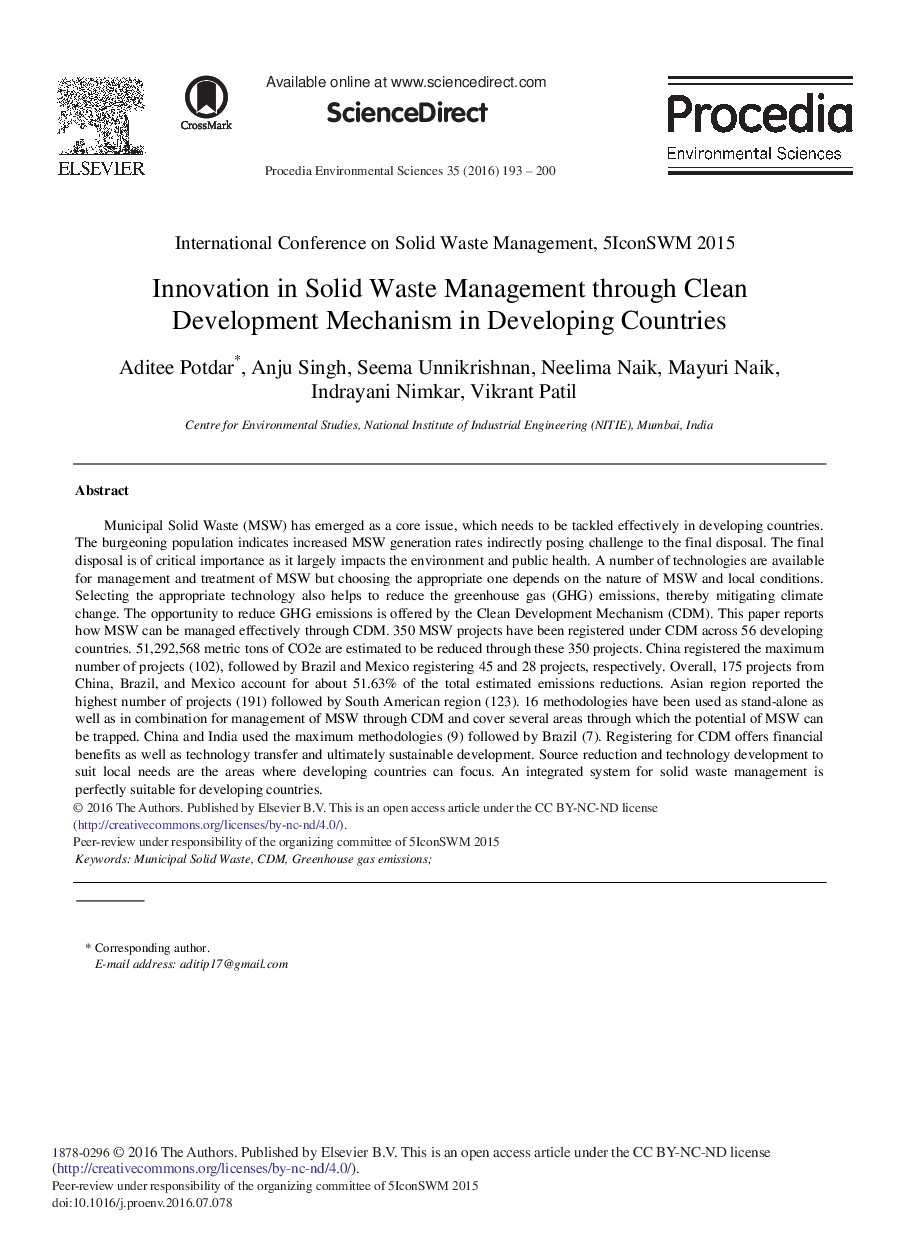| Article ID | Journal | Published Year | Pages | File Type |
|---|---|---|---|---|
| 4401371 | Procedia Environmental Sciences | 2016 | 8 Pages |
Municipal Solid Waste (MSW) has emerged as a core issue, which needs to be tackled effectively in developing countries. The burgeoning population indicates increased MSW generation rates indirectly posing challenge to the final disposal. The final disposal is of critical importance as it largely impacts the environment and public health. A number of technologies are available for management and treatment of MSW but choosing the appropriate one depends on the nature of MSW and local conditions. Selecting the appropriate technology also helps to reduce the greenhouse gas (GHG) emissions, thereby mitigating climate change. The opportunity to reduce GHG emissions is offered by the Clean Development Mechanism (CDM). This paper reports how MSW can be managed effectively through CDM. 350 MSW projects have been registered under CDM across 56 developing countries. 51,292,568 metric tons of CO2e are estimated to be reduced through these 350 projects. China registered the maximum number of projects (102), followed by Brazil and Mexico registering 45 and 28 projects, respectively. Overall, 175 projects from China, Brazil, and Mexico account for about 51.63% of the total estimated emissions reductions. Asian region reported the highest number of projects (191) followed by South American region (123). 16 methodologies have been used as stand-alone as well as in combination for management of MSW through CDM and cover several areas through which the potential of MSW can be trapped. China and India used the maximum methodologies (9) followed by Brazil (7). Registering for CDM offers financial benefits as well as technology transfer and ultimately sustainable development. Source reduction and technology development to suit local needs are the areas where developing countries can focus. An integrated system for solid waste management is perfectly suitable for developing countries.
